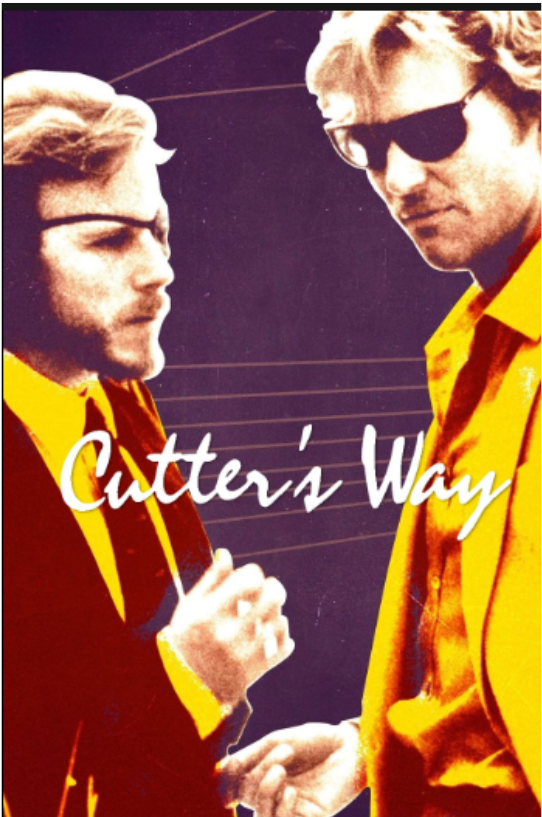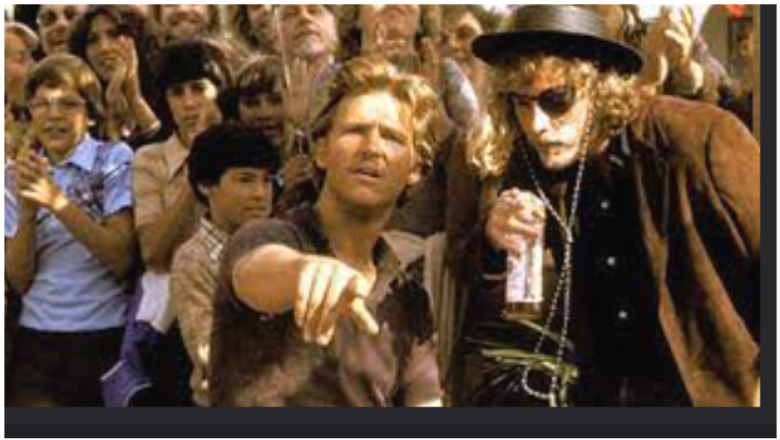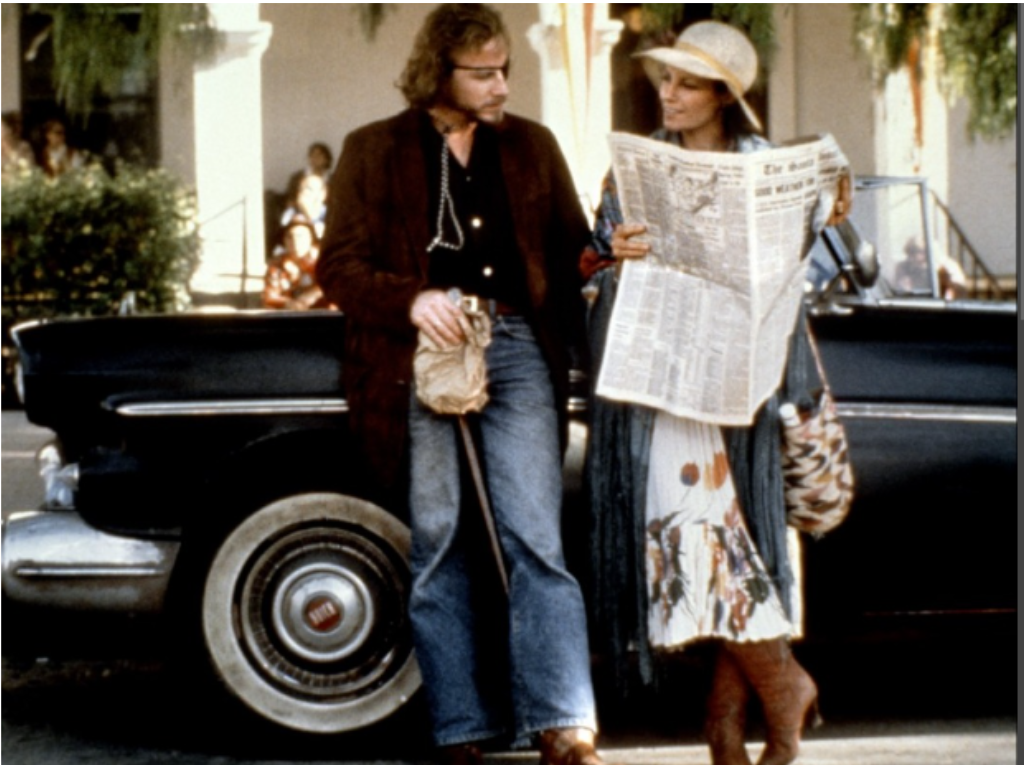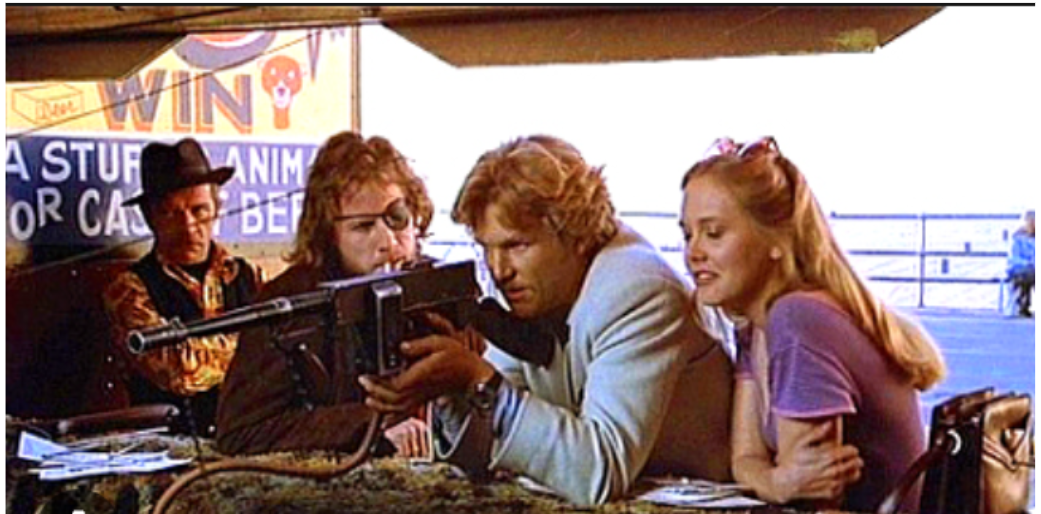Dir. Ivan Passer
This neo-noir, set in Santa Barbara, is everything other neo-noirs are trying to be. It takes the old tried-and-true noir themes—badly lit alleys, drunken damaged detectives, troubled inescapable women—and puts a new Southwestern twang on it. Who knew mariachi could be so frightening?
In it together
Two middle class guys—one a gigolo (Bridges), the other a crippled Vietnam vet (Heard)—live with the vet’s wife in beautiful Santa Barbara. The gigolo (aptly named Bone) is clipped by a boat of a car on his way out of his latest conquest-cum-transaction. He only gets a glimpse of the driver, and then the car is gone down the rainy alley.
The next day, however, a poor lovely lady in high heels is discovered in one of the alley’s trash cans by a pair of sanitation workers (one of whom has the most honest reaction to a corpse in any movie I’ve ever seen—yurking). Although Bone is too smashed up inside to question what he saw, his outwardly bashed-up buddy, the one-armed, one-legged, one-eyed, aptly named Cutter, smells a murder and sets his sights on one of the area’s richest oil magnates—JJ Cord, played by Stephen Elliott.
A rare smile from Mo
What neither one of them could do on their own, the two men find the strength, will, and sobriety to do together, and they tilt at windmills up until the final tragic scenes. This neo-noir does it right in that there are plenty of thrills, but none as thrilling as watching the three central characters battle it out against the haunting score.
Practicing
Although there’s a murder, this movie isn’t really about a murder. There’s brutality, but the most brutal aspect is the way the characters treat themselves and one another. This film was made in the hangover of the 70s in the shadow of Vietnam, the reason behind Cutter’s maimed existence. But, if you’re wondering, Cutter isn’t the most tragic character and seems enviably whole in his rare glimpses of sobriety. No, it’s Mo—Cutter’s despondent drunk wife and Bone’s great unrequited love—hating herself to death with a bottle in the corner.
The end unravels in a maelstrom of violence and confusion and, as many critics have noted, makes a general mess of things. I sure do love Mrs. Cord, however, forever shocked at how it’s all turning out.
-MH
<clutches pearls>




